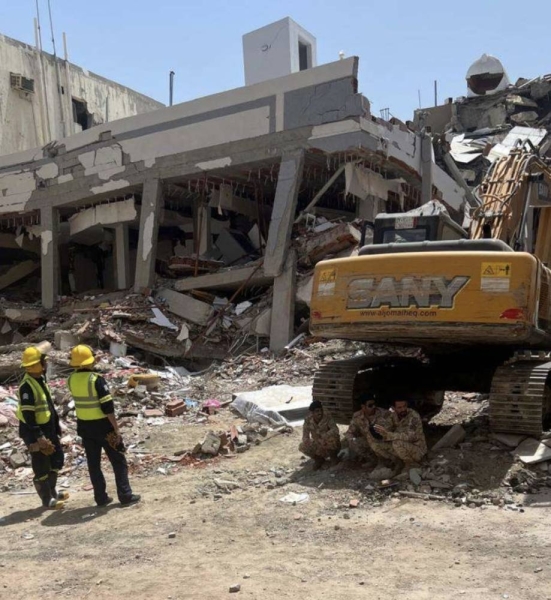Saudi Arabia’s Oversight and Anti-Corruption Authority (Nazaha) recently made headlines after several individuals were arrested in connection with the collapse of a residential building in Jeddah. This tragic incident resulted in seven deaths and eight injuries, all of which were attributed to corrupt practices in issuing building permits. The authority launched an investigation into the collapse, uncovering alarming details of wrongdoing.
The investigation revealed technical defects in the building, prompting the municipality to order a halt to construction. However, the building owner, Firas Hani Al Turki, who is also the Deputy Minister for Shared Services at the Ministry of Culture, failed to comply with the directive. Instead, he enlisted the help of his legal representative, Fahad Hussein Ali Sanba, who engaged an engineering consultancy office owned by Majed Mohammed Jameel Bushnaq to obtain a fraudulent building permit.
In exchange for a bribe of SR50,000, the engineering office provided a demolition permit followed by a building permit containing falsified information, including doctored photos showing the building had been demolished. Construction continued with the addition of two floors and an upper annex, ultimately leading to the building’s collapse. The building owner admitted to paying the bribe for the illegal issuance of the permit, implicating all individuals involved in the scheme.
Nazaha, in collaboration with a committee formed by the Emir of Makkah Region, swiftly took action by detaining all individuals connected to the corruption scandal. Legal proceedings are currently underway to hold those responsible accountable for their actions. Nazaha reaffirmed its commitment to upholding the law with zero tolerance for corruption, sending a strong message that such misconduct will not be tolerated in the Kingdom of Saudi Arabia.
The collapse of the residential building in Jeddah serves as a stark reminder of the devastating consequences that can ensue from corrupt practices in the construction industry. Not only did this incident result in loss of life and injury, but it also highlighted the dangers of cutting corners and engaging in unethical behavior to bypass regulations. The swift response from authorities in investigating and apprehending those involved sends a clear message that accountability will be enforced.
As the investigation unfolds, it becomes clear that the corruption involved in this case extended beyond just the building owner and his legal representative. The collusion between multiple parties, including the engineering consultancy office and intermediary contractor, sheds light on a network of individuals willing to exploit the system for personal gain. By exposing and addressing these intricate relationships, Nazaha is taking a crucial step towards rooting out corruption in the construction sector.
Moving forward, it is essential for regulatory authorities and oversight bodies to strengthen measures to prevent future incidents of corruption in building permit issuance. Transparency, accountability, and strict enforcement of regulations are paramount in ensuring the safety and integrity of construction projects. By promoting a culture of ethical conduct and zero tolerance for corruption, Saudi Arabia can safeguard against similar tragedies and uphold the principles of good governance in all facets of society.
In conclusion, the collapse of the residential building in Jeddah serves as a wake-up call for the construction industry and regulatory authorities to remain vigilant against corrupt practices. Nazaha’s swift response in investigating and apprehending those involved demonstrates the Kingdom’s commitment to upholding the rule of law and combating corruption. By holding all parties accountable for their actions, Saudi Arabia sends a clear message that unethical behavior will not be tolerated, setting a precedent for transparency and integrity in the construction sector.











